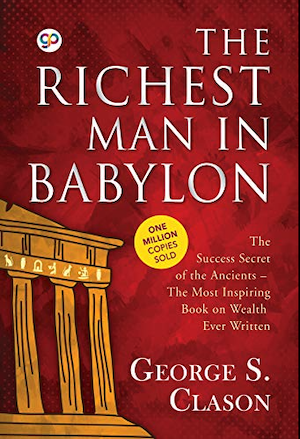The Richest Man in Babylon is a fascinating book by Clason George written in 1926.
The beauty of this book is that the financial discipline explained almost a hundred years ago still apply to this day and age.
I have always tried to become better at managing the finances both in personal and business life. Have read a few books such as Rich Dad Poor Dad, but this is the first book in this category that touches both the personal and business side of financial discipline.
The most important lesson I have learnt (based on my interpretation) is:
- Spend only 7/10th of whatever you earn
- Always save 1/10th of whatever you earn – this is for the future you
- With the remaining 2/10th, either pay off any debts that you may have or add it to the savings for the future you.
The story is about the richest man in Babylon and how his experiences have life lessons in financial discipline for many of us.
As you read along, one cannot help noticing that there are some gems hidden in the chapters in this book.
One of them is this: “Necessary expenses will always grow to equal our incomes unless we protest to the contrary. Budget thy expenses accordingly.”
It is so true. I have noticed that no matter how much more money you make, our necessary expenses will find a way to match that!
Another one is: “Make thy gold multiply”.
It simply means that the money you have saved might not offer you the best returns if it sits idle in your bank account or at home. It makes sense to invest it into meaningful assets such as real estate, buying stocks or gold or something that you believe in, which will give better returns than just keeping it in your bank account.
Was pleasantly surprised to see the importance of upgrading your skills all the time. The author says:
“Cultivate thy own powers, to study and become wiser, to become more skilful, to so act as to respect thyself.”
As you can see, every single recommendation appears to be time-tested and proven to work every single time.
Highly recommend reading this book to increase financial literacy.
